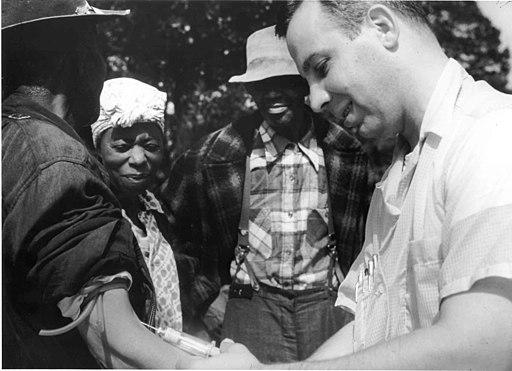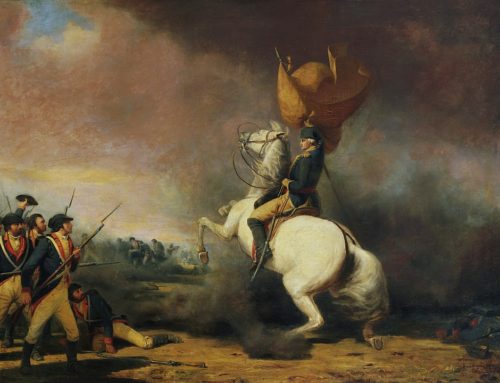“The United States government did something that was wrong—deeply, profoundly, morally wrong. It was an outrage to our commitment to integrity and equality for all our citizens… clearly racist.”
“To the survivors, to the wives and family members, the children and the grandchildren, I say what you know: No power on Earth can give you back the lives lost, the pain suffered, the years of internal torment and anguish.
—President Clinton’s apology for the Tuskegee Syphilis Experiment to the eight remaining survivors, May 16, 1997
For forty years between 1932 and 1972, the U.S. Public Health Service (PHS) conducted an experiment on 399 black men in the late stages of syphilis. These men, for the most part illiterate sharecroppers from one of the poorest counties in Alabama, were never told what disease they were suffering from or of its seriousness. Informed that they were being treated for “bad blood,” their doctors had no intention of curing them of syphilis at all.
The data for the experiment was to be collected from autopsies of the men, and they were thus deliberately left to degenerate under the ravages of tertiary syphilis—which can include tumors, heart disease, paralysis, blindness, insanity, and death. “As I see it,” one of the doctors involved explained, “we have no further interest in these patients until they die.”
The Tuskegee Experiment must be one of the most amoral, deplorable, notorious, mean-spirited medical projects ever conducted by the American government on its citizens. Succinctly stated, the project rivaled the worst aspects of the Nazi medical experiments. Sadly, this program only ended when the Washington Evening Star in 1972 reported that the U.S. Public Health service working with Tuskegee Institute had conducted a study in which human guinea pigs, not given readily available medical treatment, died of syphilis and its side effects.
The failure by the government to meet even minimal human standards is a dastardly stain on our nation. That is, 399 illiterate blacks suffering from syphilis were 1) not told that they had syphilis but only given the incorrect prognosis of “bad blood” 2) were misled that they were being treated by the most up to date medicine when by 1947 penicillin was the standard method for treating syphilis, 3) penicillin was forcibly withheld from these men when they sought alternative treatment to the National Health Service 4) the conductors of the experiment were only interested in how the disease spreads and kills
For participating in this experiment over forty years, these primarily black tenant farmers were given “free medical treatment,” meals, and burial insurance. In return, these men infected their wives and their children.
In conclusion, since I grew up in the segregated South, I did see first hand some of the worst elements of racism—poor dilapidated schools, no public accommodations, denial of access to movie public parks, zoos, and no employment of Blacks by the municipal government. Moreover, since the State of Texas imposed these callous laws on its black citizens I presumed that the state elders were acting with wisdom rather than just blind bigoted ignorance. While I intuitively felt the humiliation of the blacks, I never understood the malevolent meanness that underscored segregation. The Tuskegee Experiment far exceeds even the brutality that segregation implied. In fact, it makes George Wallace’s barring of Blacks at the University of Alabama seem like a tame farce. His words “segregation today, segregation tomorrow, and segregation forever are child play compared to the methodical diabolical treatment of the blacks in the Tuskegee program for forty years.”
It is my understanding that no professional associated with the Tuskegee experiment was ever subject to criminal prosecution.




